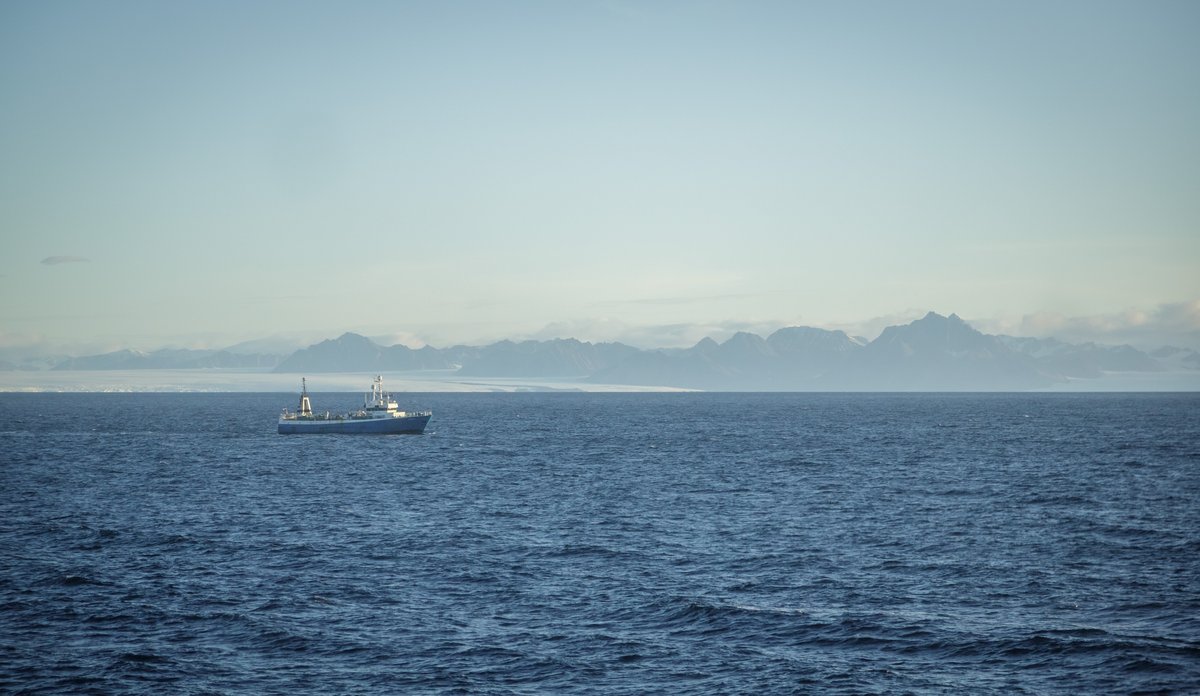Managing Marine Ecosystems in a Rapidly Warming Arctic – Register now

| Date | 16. April 2024 - 18. April 2024 |
|---|---|
| Location | Framsenteret, Tromsø |
| Web page | Conference web page |
Early bird registration is now open for the 3rd International Conference on Ecosystem Approach to Management in the Arctic Large Marine Ecosystems titled, “Managing Marine Ecosystems in a Rapidly Warming Arctic.” The conference seeks to explore pathways towards a future with a holistic perspective in managing the region’s fast changing marine ecosystem.
Arctic warming, retreating sea ice and an increase in human activity are leading to unprecedented changes and far-reaching consequences for Arctic marine ecosystems and the people and communities that rely on them. While ecosystem-based Management (EBM) is an established practice, the fundamental changes that Arctic marine ecosystems are undergoing raise questions as to how this concept will be pursued in future. The third EA International Conference seeks to address these questions, exchange lessons learned and best practices for the implementation of EA in the Arctic, and examine how these practices reflect the knowledge, goals, advice and the voices of the peoples living in and from the Arctic.
The conference invites governing bodies, science institutions, knowledge holders, early career professionals, universities, environmental institutions and other stakeholders to participate in this interactive transdisciplinary conference with presentations, discussions, chat-cafes and poster sessions.
Register for the conference here.
The conference is part of the official Norwegian Chairship program of the Arctic Council (2023-2025). In Norway’s Chairship program, the oceans are a featured priority with a focus on integrated ocean management.
Conference Sessions
The conference is organized within the following three main sessions.
Session 1: Cooperation and governance for Ecosystem Based Management: Status and shared experiences from across Arctic marine ecosystems.
Session 2: Looking for improved integration of knowledge across marine ecosystems: Ensuring research, monitoring and assessment of the whole ecosystem, across various knowledge systems.
Session 3: Establishing participation, knowledge exchange and decision-making for Ecosystem-based approaches to policymaking.
The conference will be available for virtual participation. More information on this will follow. More information about the conference and its program can be found on the conference website.
Early Career Professionals
The third EA International Conference will have a focus on engaging young scientists and early career professionals throughout the conference. Early career professionals will have an opportunity to get involved in the conference program and shaping important discussions on the future of ocean management. Some limited funding is available to support students, young professionals and Indigenous knowledge holders. More information on the role of early career professionals is forthcoming.
What is the Ecosystem Approach to Management?
In an Arctic Council context, EBM (also known as EA) is defined as the “comprehensive, integrated management of human activities based on best available scientific and traditional knowledge about the ecosystem and its dynamics, in order to identify and take action on influences that are critical to the health of ecosystems, thereby achieving sustainable use of ecosystem goods and services and maintenance of ecosystem integrity" (Kiruna Declaration, 2013).
Co-conveners and organizing committee
The Norwegian Chairship of the Arctic Council is the convener of this conference.
The co-converners and the organizing committee consists of the Arctic Council Working Groups Protection of the Arctic Marine Environment (PAME), the Arctic Monitoring and Assessment Programme (AMAP), the Conservation of Arctic Flora and Fauna (CAFF) and the Sustainable Development Working Group (SDWG), as well as experts from Arctic Council States, Permanent Participants and the Observer organizations International Council for the Exploration of the Sea (ICES) and WWF-Arctic.
The financial sponsor of this conference is the Norwegian Chairship of the Arctic Council, the Institute of Marine Research in Tromsø, Norway, and the International Council for the Exploration of the Sea (ICES) and Tromsø Municipality.
Universities and research institutions in the Arctic will support and facilitate the Conference with early career scientists and events.
* * * * *
The Arctic Council, Intergovernmental Panel on Climate Change (IPCC), and the United Nations (UN) all acknowledge that the Arctic temperatures are rising faster than any other place on Earth.
This is changing the Arctic in visible ways and at an unprecedented speed. Consequences will be far-reaching for marine ecosystems, and the people and communities that rely on them for their livelihoods and cultures.
As the sea ice retreats and the Arctic Ocean becomes increasingly accessible, pressures from human activities are also increasing. These growing pressures increase the risks marine ecosystems and biodiversity are facing and threaten current approaches to marine management and conservation.
Ecosystem-based Management (EBM) is endorsed at the highest level, including UN bodies and states.
The Arctic Council embraces Ecosystem-Based Management of human activities in the Arctic to achieve sustainable use of ecosystem goods and services and maintenance of ecosystem integrity and is issuing guidance for its implementation that involve Indigenous peoples, local communities and industry stakeholders.
Likewise, EBM is increasingly a topic of interest in universities and academia.
What We Like to Do:
This conference will exchange current lessons and best practices for the implementation of EBM in the Arctic and examine how these practices reflects the knowledge, the goals, the advise, and the voices of the people living in and from the Arctic.
We explore pathways toward a future with a holistic perspective in managing the regions fast changing marine ecosystem.
Who do we Invite:
Through three sessions, that encapsulate different parts of the EBM we invite:
- Keynote speakers to inspire and challenge us.
- Scientists, early career scientists, students (and youth) to present their fields of study (or questions).
- Indigenous Knowledge holders to share and provide guidance based on their cultural values, worldviews, and perspectives.
- Governing bodies to disentangle the challenges of cross-sectorial approaches and explore how they can contribute to apply holistic ecosystem knowledge to decisions, management, and operations in an evolving Arctic.

Co-convened by:




Published: 02.08.2023 Updated: 06.11.2023

